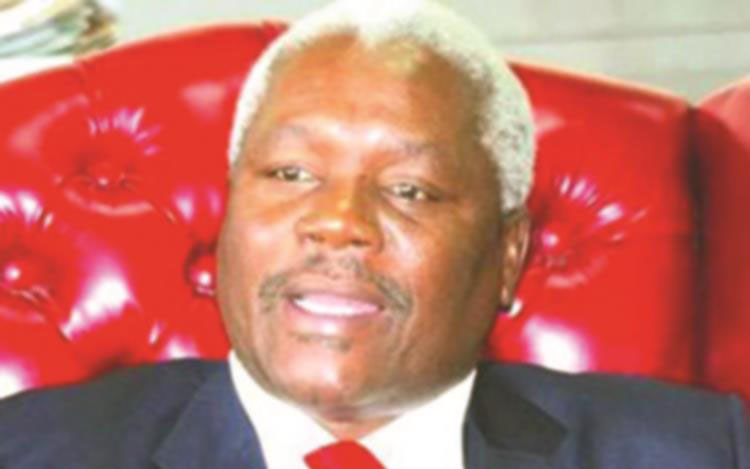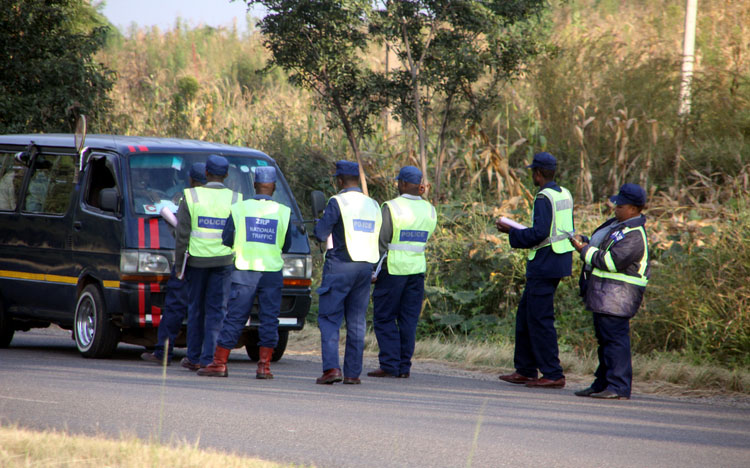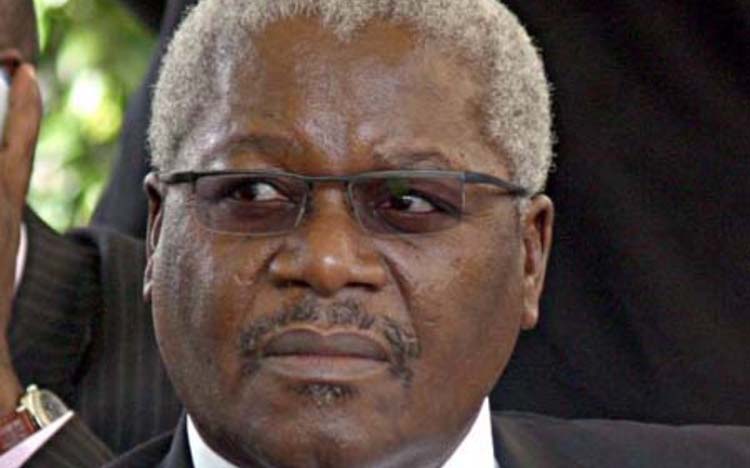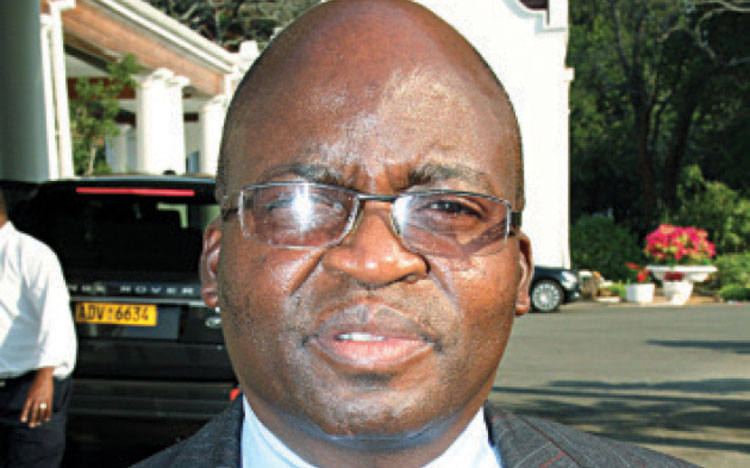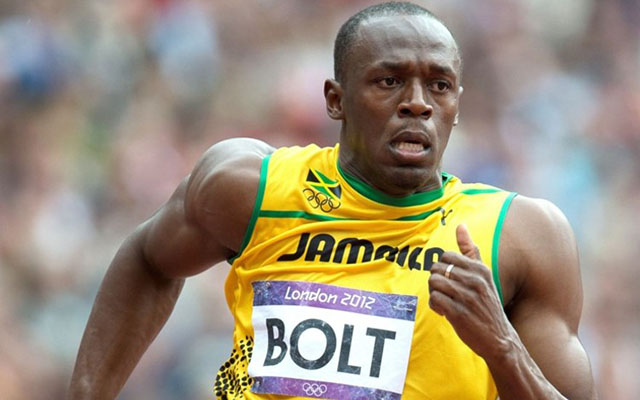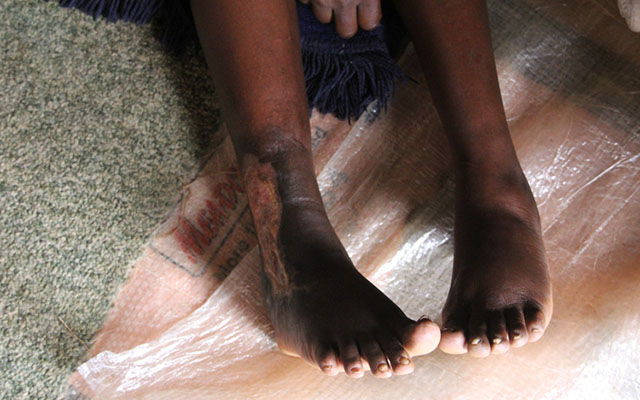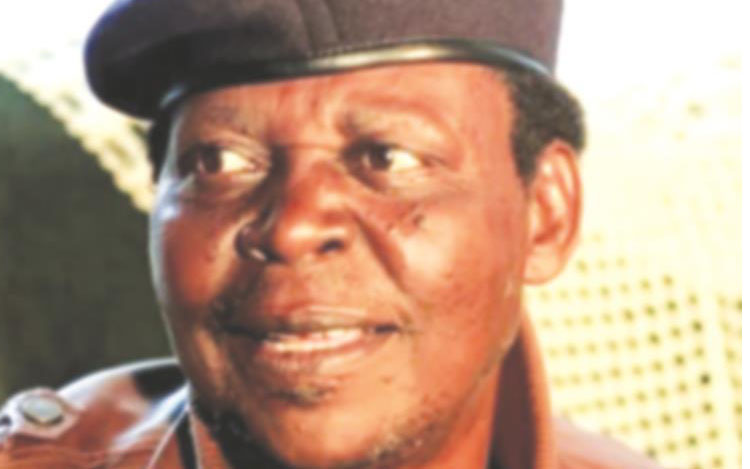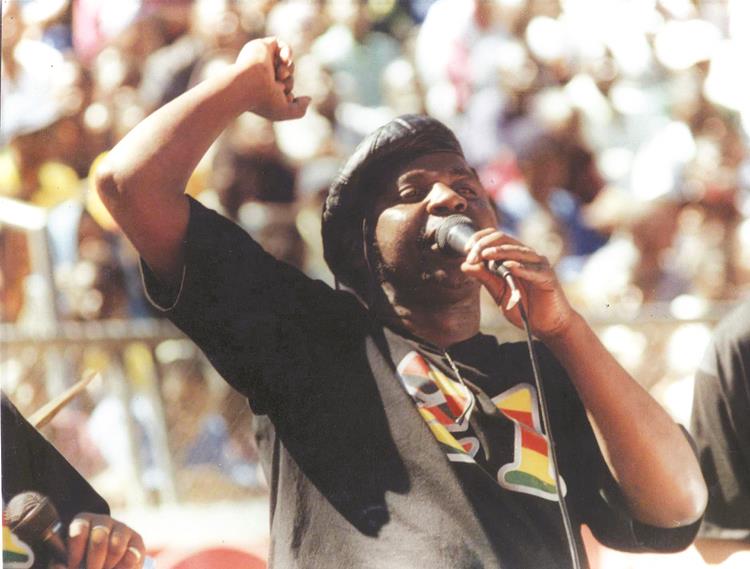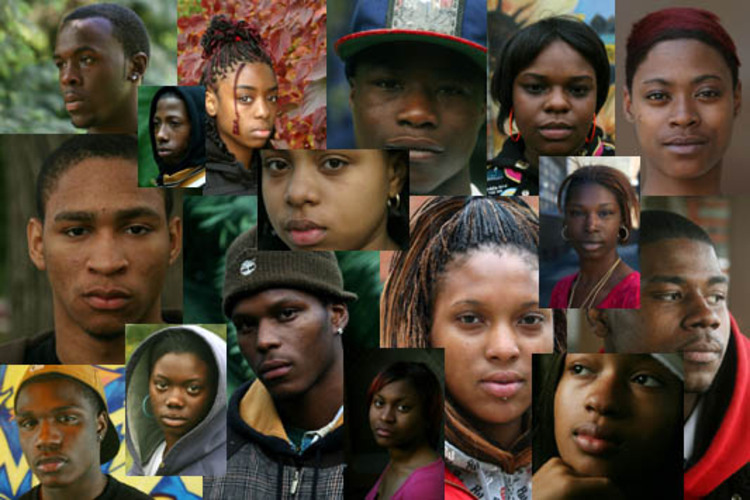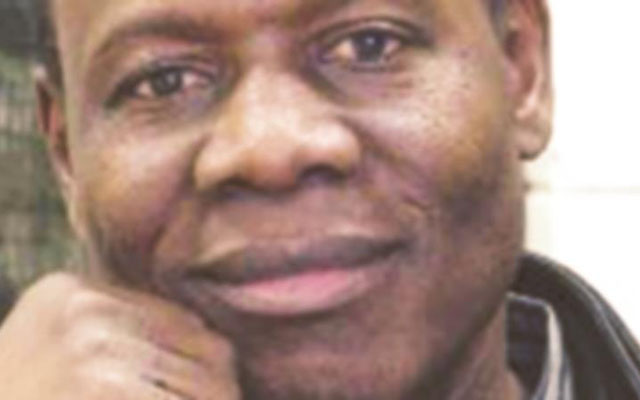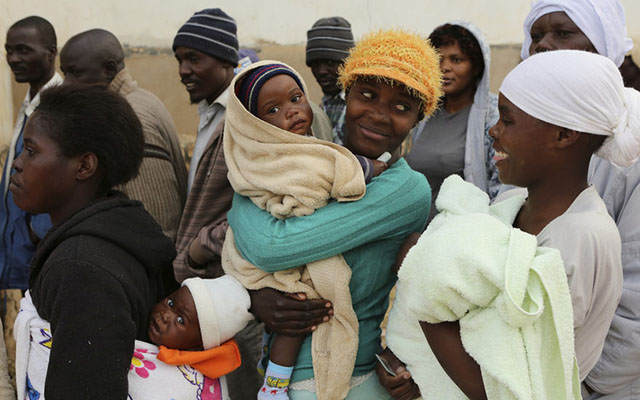![Jonathan Moyo]()
Jonathan Moyo
THE OTHER SIDE NATHANIEL MANHERU
IT’S been many seasons ever since this column was launched, more accurately ever since I adopted it from its “tired” founder, Professor Jonathan Moyo. While I know Nathaniel to be his middle name, I will not hazard a guess on why he surnamed it Manheru. A classmate of his who claims to have grown up with him in one of the then African suburbs of Bulawayo has shared some theory on the provenance of that surname. I dare not repeat his story here, for it’s none of my business. But the genesis of this column is quite interesting in its own right, and would require a long narrative portion of its own. I will attempt a broad brush.
The column, together with its short-lived variant in the Bulawayo Chronicle, which the same founder called “Lowani”, arose in circumstances in which the opposition MDC had virtually hegemonised institutions of higher education, not to mention that party’s hold on intellectuals already in the field, among them most lawyers. For at launch, the MDC had skilfully turned itself into a fashion fad, with its hold on a generation disturbingly palpable. The times were torrid for Zanu-PF and its government. The narrative of the ruling party was not only too familiar to energise; it sounded predictable, reducible and hackneyed to the point of being uninventive, and of crying out for renewal. MDC had corralled trendy political nomenclature. This was quite disturbing, unsettling.
Hastening the hand of time
But there was a chink in MDC’s armour. The MDC did not need to be clever; it only needed to be associated with a certain vocabulary, and with people generally regarded as clever and harbingers of new times, of change. Jonathan and I knew this. For beneath this show of political modernity and sophistication, indeed beneath the catchy “Chinja” slogan, a slogan which was accompanied by a defiant thrust of open palms, lay pedestrian intellect, much of it clothed in borrowed robes, robes borrowed from the West. MDC rode on the crest of this and forgot to think beyond slogans and reducible neo-liberal terminology. We knew that time would soon vaporise this enchanting novelty. The key was to hold the centre, possibly pushing the hour and minute-hand beyond the tic-toc pace of natural time. To induce faster perishability to this highly toxic political fad!
Days donors dominated
Still those western robes, borrowed though they might have been, had found ripe ground in the disgruntled national psyche, indeed amounted to a layer of adversity for both of us, positioned as we were to reassert long-vanished thought leadership of the ruling Party already viewed as tired and old-fashioned, against new times. For the MDC had on its list great researchers and great research institutions from the West, and also from white South Africa, which drove and animated its mind, and from which it garbled profound thoughts against which Zanu-PF and its government were measured. To that add donor funding which drove local research at a time when Government was not investing in knowledge production, still less in retaining the loyalty of the literati, organic intellectuals in Gramscian terms.
This donor patronage made it handsomely rewarding for local scholars to take up western-sponsored sabbaticals. Or to take up research projects which were paid for in hard currency at a time when the local unit was on a vertiginous tailspin. The donors would not only pay; they would also create audiences and induce accolades for research results and publications. And because they had invested in the so-called private press, these research outputs were sure to find repeated loud play here at home.
Fitting a stereotype
To that, too, add this abiding perception that the Zimbabwean bureaucracy was bereft of intellectuals, bereft to levels of anaemia. That all it produced was staid at best, thoughtless at worst. And predictable responses to challenges of the day did not help matters at all. The Zimbabwe Bureaucracy seemed easy to encompass by way of its thought-tracks, unvaryingly predictable. It lacked surprises, nuances. It was not clever, knew no arresting sound-bites so much the idiom of the age.
Much worse, it reacted, reacted and reacted, and often with hard armour, thereby perfectly fitting a well-calibrated stereotype of a high-handed autocracy. Soon it was discounted as a credible site of an alternative viewpoint, which meant it was not only justifiable to publish without it; it was in fact moral to do so, indeed proof of your commitment to the rule of law, human rights, democracy and, ironically enough, transparency! Looking back, it is clear the ruling Party had been overtaken by the very society it sought to govern. Society had marched on, marched ahead, and had found a new mores, and acquired a great deal more sophistication than could be digested by its governors, however powerful.
Except you have to have intellect
Not that the ruling Party had no intellectuals, no morality, no convincing, winning ideology. Far from it. Only that long years of enjoying the liberation dividend and the smugness that inevitably followed, had bred incredible thought indolence and complacency. And also a false sense that a wartime national grievance needed no rehashing; that it was self-evident and spoke for itself! For here was a ruling party firmly on the side of the landless majority, yet losing the argument to an invading race, supported by local puppets. Or misled students. A party struggling to convince a disinherited people on the correctness of recovering their heirloom! It was crazy.
![President Mugabe]()
President Mugabe
I remember raising this with President Mugabe, specifically raising the issue of why Zanu-PF had lost control of the university it had inherited, lost control of all universities it had created, and continued to create. In half frustration and half anger, President Mugabe retorted: “Except you have to be an intellectual yourself to engage universities.” I cringed. Still I shared this short conversation I had had with the President, shared it with Professor Moyo, then my minister, and himself an intellectual of note.
Absolved reporters
Looking at the media terrain, one was struck by the sheer paucity of graduate employees in newsrooms. You notice I avoided the word “reporters”, which in fact summed up our dilemma. Possibly because of too frequent use, it is often forgotten that etymologically the noun “reporter” comes from the prefix “re-”, which means ‘again”, and the verb “port” which means “to carry”. Our newsrooms were dominated by porters who could only “carry” and “carry again” thoughts given them by self-interested sources. Like we say in Shona, mutumwa haana mbonje — the messenger bears no scars. His is only to carry, to faithfully convey to the receiver.
There was thus this culturally embedded and excused stance of non-committal uncritical-ness in our newsrooms which stood eternally absolved. As a reporter, your role was simply to carry back to society what the politician would have said, however bald. And the more home-grown the argument or source was, the greater the contempt. And the obverse, the more overseas a source was trained or domiciled, the greater the aura of believability, of respectability.
Thought encirclement
Using an age-old strategy, imperialism which had ranged itself against Zanu-PF and Zimbabwe, would make well-timed, periodic thought interventions both from the Metropolis and from Zimbabwe or the region, interventions sure to find loyal conveyancing in our reporters so besotted by wise men and women from the West. Zanu-PF had not invested in newsrooms to found knowledge cadres who could critically relate to ideas and their purveyors. The more so when these purveyors were white Westerners backed by institutions whose fame in knowledge production spanned over centuries of proven intellectual endeavour. Such as Cato, NDI, IRI or Westminster something. Or even their black clones here by way of local scholars raised in these leading western institutions.
Or better still their racial scions manning think-tanks in South Africa. Zanu-PF faced a stiff epistemological assault and crisis. And as insiders, the Professor and I keenly felt the crisis, and in ways that pricked both of us quite personally. For both of us had eaten considerable book, in my case largely at home; both of us knew the need to decolonise structures of knowledge. Indeed both of us knew the need to build alternative knowledge sites, all of them steeped in the liberation narrative which sorely needed revamping from its wartime premises. We knew and saw the need to confront the rabid, externally-sponsored narrative that ran counter not just to the politics of formal decolonisation, but also counter to the continuing project of validating that formal decolonisation through social justice, initially and principally through land reforms.
Feral western press
All this, in rough and in summary, provides a context within which “The Other Side” must be read and understood. The goal was to challenge emerging orthodoxy, all of it oppositional; all of it western inspired and amplified, all of it aimed at shifting national thinking in ways that hallowed Western neo-liberal thinking. And, much of it localised and legitimised through native echoes by way of well-regarded, black-skinned scholars. The goal, too, was to provide intellectual justification to clearly far-sighted policies which Zanu-PF pursued seemingly without consent or popular base, all of them steeped in history and founded in nationalist struggle, but none of which was being articulated, explained or defended convincingly. Not helped by the Western press which ran riot in bastardising any such forlorn explanations, themselves already weak and inordinately intermittent anyway.
Short of getting the President to be in the news every day, it became very difficult to see how else the situation could be salvaged. And the West and its fiercely loyal, feral and well-networked media systems wanted exactly that: to put the President on the spot all the time in order to cheapen or exhaust him. Which meant to us the defence of the Zimbabwe revolution would entail protecting the man at the apex against deliberately engineered mundaneness calculated to tire him out, and to lower his value and newsworthiness.
Winning both on swings and roundabouts
Much worse, there was also a direct economic motive to this media-led western slander of the country and its leadership. Apart from raising a broader defence for local white landed interests, as well as for an “emigre” landed gentry owning and running estates here through proxy management, western publishers would slander the country in order to create and stimulate demand for paid-up advertorial interventions by the victim through which those same recited calumnies, hopefully would be corrected.
There was thus this baffling duality to the media-led attack on Zimbabwe: a raw impugning of country policies and all corrective activities that upset colonially ordained economic structures on the one hand, and fervent courtship for expensive “country specials” to be paid for by the maligned Zimbabwe Government on the other. The flip side of an attacking white western journalist was always a supple white publicist vending out expensive pages for advertorials, all to be inserted into the same papers that attacked the country. That way, imperialism sought to make rich pickings both at the swings and at the roundabouts.
Retrofitting social thoughts
The response to all broadened attacks took many forms which cannot be encompassed by this piece whose focus, anyway, is the column. Let it be said that for a while, Professor Moyo was the hand behind the Nathaniel Manheru column. It does not take much analysis — whether thematic, tonal or stylistic — to gauge how far into the column he went. Or to tell when I took over from him, and this after he could not “service” the column for reasons which he himself might want to shed some day.
His style and mine are quite different. Here and there, Zimpapers staffers would contribute under the same pseudonym, which, again, should be very easy to tell. But this was for a very short time and in few instances that I wouldn’t be available. Under my hand, the column consolidated a readership which grew and grew until it became not just a talking point nationally, but also until it attracted sprite legal and political responses, none of which ever succeeded or prevailed respectively. Its uniqueness rested in its combative and compulsive stylistic presence which made it a reading experience both for friend and for foe.
Much more, it bedecked its arguments with deep research and literary quotes which made it unassailable. With time, it reoccupied the centre-point of national debate, even becoming a good and trusted hint at occurrences in the national body-politic. With good reason, many suspected the writer wrote in close proximity to political decision making units, which meant its hints could not be taken lightly. The initiative had been regained, itself the goal of the column. And once comfortably set in the agenda-setting seat, the column proceeded to help with broader social thought “retrofitting” in order to elaborate on the ever-evolving policy and praxis terrain. I hope this is not an idle boast. After all the proof of having successfully jumped down the giant iroko tree is a journey home, and many such journeys long after!
Unnerved by the President
Apart from its broad readership, whether at home or abroad, whether national or foreign, the column enjoyed patronage of key elements in the leadership. I recall an unsettling conversation I had with the President who, in noting a general misconception on a key policy pursued by his Government which I shall not disclose, added: “I notice even Manheru is also unclear on this one!” It had never occurred to me that the President took time to read the column which, on not so few occasions, revelled in the bawdy and abrasive, especially in its irreverent treatment of opponents. It was a felling blow and I recall missing two instalments in a row thereafter. Just the mere knowledge that the President at times read the column was staggering! More feedback would come from him, including his criticism that Professor Moyo and I were writing above the very society we were supposed to convince and move.
And in case we doubted his fitness to make the critical observation, he added: “I was the founder Secretary for Information and Publicity in the National Democratic Party, NDP”. Fortunately he left room for some defences. Comrade President, I remember lamely contradicting him, the column is meant to challenge and topple hostile intellectuals who were beginning to hog the thought limelight, all to the detriment of the Party. “Alright then.” I very doubt that he was convinced.
![Cde Shamu]()
Cde Shamu
Mission impossible for Timba
Another unsettling feedback came from a long-time friend, the late Alexander Kanengoni. Then, I had decided to call off the column temporarily to allow the tender shoots of the Inclusive Government to sprout, grow firm and strong. The reading in the market was that Cde Webster Shamu, my minister then, had stopped the column.
That was untrue. He would never do such a thing. It was a personal decision, and one founded on a promise to bring it back at an appropriate time. Which happened, but not without another round of awkwardness. It so happened that MDC-T leader Morgan Tsvangirai, then as Prime Minister in the Inclusive Government, came for a meeting at State House with President Mugabe. His party had on numerous occasions complained about the column, even putting pressure on Hon. Timba, then Deputy Minister of Information and Publicity in the Inclusive Government, to ensure the column was stopped. Of course this was a tall order. Besides, Hon. Timba found himself in a double bind: first, he could not have sought to stop the column without exposing himself and his party to charges of paying lip service to the notion of freedom of expression; second, he and I had been colleagues at the University, something which meant we had a relationship that ran deeper than mere party dichotomies. It’s a relationship we have kept intact to this day.
The day uncle felled Manheru
But clearly frustrated by the lack of progress in stopping the column, the then Prime Minister took it upon himself to tackle me directly. Except he used a flank I had not expected, and nearly felled me: “Muzukuru, kana wotuka, uzive kusiya pohukama!” Oh my good Lord! I couldn’t even raise a defense, only managing to limp away, mortally wounded by overwhelming guilt. The MDC-T leader is my uncle. His rural home is barely 10 minutes’ drive from my rural home. A double uncle in the sense that two of my “big mothers” by my late father’s elder brother, who is also late, consanguineously links me to the Tsvangirai family.
![Morgan Tsvangirai]()
Morgan Tsvangirai
The first “big mother” hails from the Mbwera family, itself part of the then Prime Minister’s Save or Nerutanga Family. The second, lesser “big mother” comes from the Mupfigi Family, again part of the VaDanga clan to which Sekuru Tsvangirai is a part! From this encounter I learnt one big lesson: far worse than laws that abridge freedom of expression is a sense of obligation to the high and mighty.
A ghost called Charamba
Back to Cde Alexander Kanengoni. When I voluntarily called off the column, he dedicated a whole piece to the decision. A requiem of sorts. That did not surprise me much for I knew him to be an adoring reader of the column. Except he added a chastisement which whilst gentle couched, did cut me to the quick: Even my good friend Manheru, he counselled, must know that all wars end up at the table! When the column resurrected for an after-life, I was a lot wiser, often tempering my barbs with deep counsel that sought more to reform than to scald. Kanengoni delivered a life-changing chastisement, one which I also wish the column’s founder could also heed!
![Cde Chinx]()
Cde Chinx
The other loyal reader was Cde Chinx, so freshly departed. I paid tribute to him last Sunday when I had an opportunity to console his family. In my tribute to him, I “outed” myself, and this as my tribute to the late departed. As always, the message was lost in reportage. Cde Chinx knew who Nathaniel Manheru was; he did not need to discover this from his coffin. We connected on that and on many other scores. In fact, each time I drew from his songs, I would cross-check with him for an accurate rendition. I used his demise to tell Zimbabweans — not Chinx — that I, George Charamba, am the ghost writer who went under the pseudonym Nathaniel Manheru.
Another ghost, same struggle
Since that self-outing, self-stripping as one website called it, friends have asked: why did you do it? Here is the answer. Of course once a ghost names itself, it’s time for wondering the earth is done. It must retire to the cemetery, to join the dead, indeed to sleep hopefully eternally. Which is what I do with this instalment, itself the last. So, adieus Zimbabwe! Bearing in mind of course that what reawakens ghosts are angering acts by the living. In those circumstances, the earth will reawaken, to great grief for all living souls. After all, every parting, every departure, presages another coming, another encounter, most probably in this life, hopefully in the one after, but definitely in another form, on some another thought, by some other style.
The struggle is long, the cause undying. For if you ask me what the National Question is today, my response will be: specifically to defend our Independence; and generally to deepen the cause of African liberation. This is why Chinx sang, “Vanhu Vese Vemuno MuAfrica”, of course without being oblivious to struggles unfolding in Asia and Latin America. For now the goals have been met and the enemy is prostrated. The guns must be silenced or, to summon Chinx yet again, hiss the sweet sounds of freedom. Till we meet again, it’s Aluta Continua.
Icho!
nathaniel.manheru@zimpapers.co.zw
